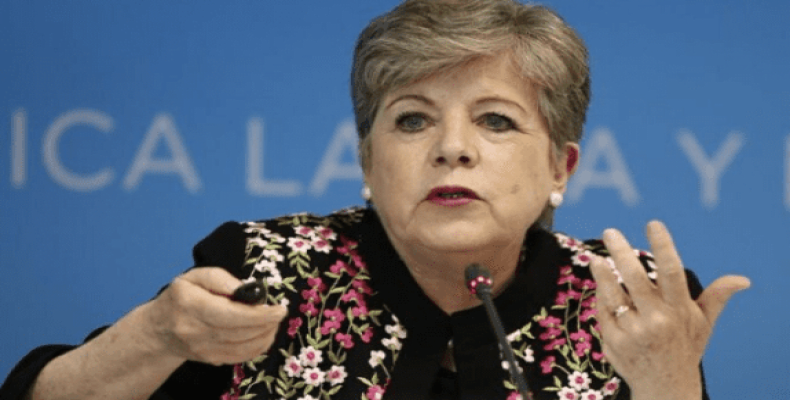Santiago de Chile, March 22 (RHC)-- The executive secretary of the Economic Commission for Latin America and the Caribbean (ECLAC), Alicia Barcena, said that COVID-19 would directly impact the already weakened world economy. She claims increasing poverty in the region for 35 million people, as well as endangering an essential global public good: human health.
Barcena added that supply and demand will be affected, "either through the interruption of production chains or by the loss of income and profitability due to rising unemployment and greater difficulties in meeting debt repayment obligations."
The expert noted that the effects of COVID-19 would be "devastating on the world economy," and different from those experienced during the financial crisis of 2008-2009. In Latin America, it is "estimated that there can be a contraction of the regional Gross Domestic Product (GDP) of -1.8 percent that could lead to an increase in the unemployment rate of up to 10 percent."
Barcena presented the five incidence points that the coronavirus will leave in Latin America and the Caribbean: linked to the reduction of exports to the Chinese market up to 10.7 percent, the drop in tourism demand up to 25 percent, the collapse of commodity prices and the fear of investment, which has already been reflected in the collapse of major stock exchanges in the region.
The expert also called on governments in the region to implement effective health and economic strategies to reduce infection and to contribute to the containment of the virus, especially among the most vulnerable social groups, not only because of their advanced age but also for their income.
"The more unequal a country is, the more vulnerable groups will bear the brunt of the economic impact of the pandemic and will have fewer resources to fight it. Special attention should be paid to women because of their dual roles as workers and caregivers," ECLAC Executive Secretary said.
Barcena ended her speech by calling for global and regional coordination and cooperation in the face of COVID-19 in synchrony with the guidelines of the World Health Organization (WHO) and inviting "to rethink everything, the entire economy. We need a new vision to focus on how to deal with this difficult scenario that lies ahead."


